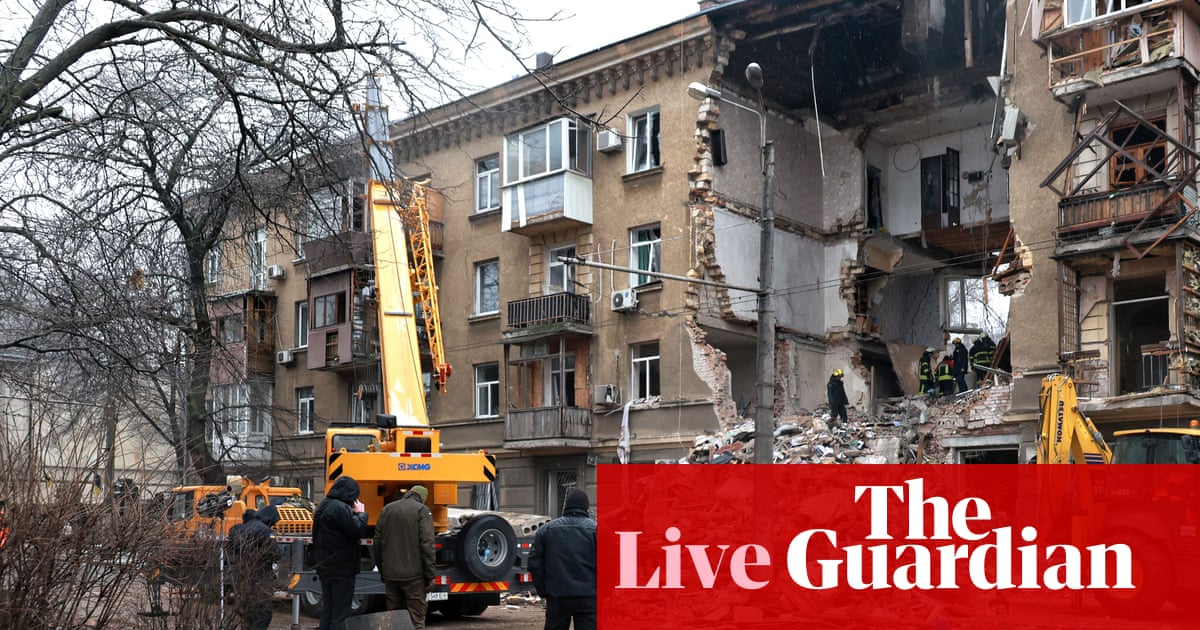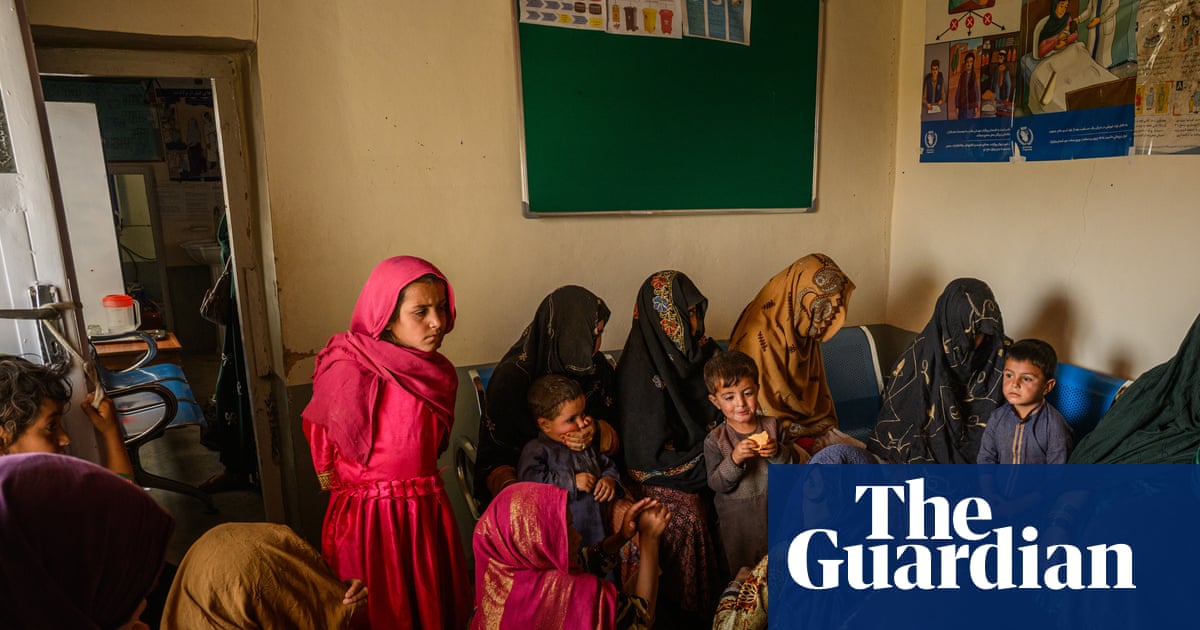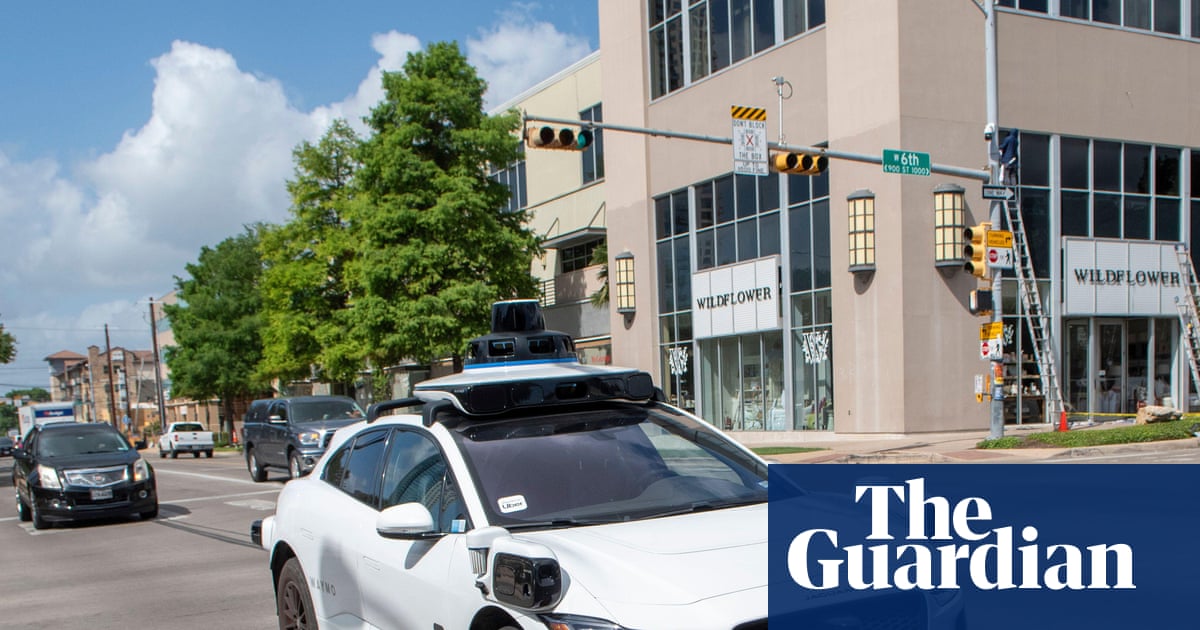Razor-straight rows of eucalyptus clones flank the Baixa Verde settlement in north-eastern Brazil. The genetically identical trees are in marked contrast to the patches of wild Atlantic forest – one of the most biologically diverse ecosystems on Earth – that remain scattered across the region.
Surrounded by nearly 100,000 hectares (247,000 acres) of eucalyptus plantations, Baixa Verde is a rare example of a local victory over a multinational in Brazil. The rural settlement owes its existence to nearly two decades of legal battles over land rights – but the fight is not over yet.
After fighting to retain their land, the families now face an unprecedented security crisis marked by armed clashes, arson and death threats, part of a wave of violence driven by a land dispute that has escalated since 2024.
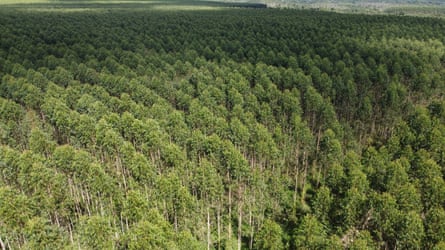
Conflicts over land rights have long been an issue in the region. Obtaining property titles is commonly deemed to legitimise land grabs from traditional communities, and local people had suspected that Veracel Celulose – a pulp-production company jointly owned by the Swedish-Finnish company Stora Enso and the giant Brazilian pulp manufacturer Suzano – was planting eucalyptus trees on public land.
In 2008, Ercilio Souza, one of the founders of the Baixa Verde settlement, and Juenildo Oliveira Farias visited government archives to review public documents. They found the page that proved the 1,300 hectares in dispute were owned by the government. “We always knew that it was public land,” says Souza.
With the document in hand, they assembled 91 local families and joined the Landless Workers Movement (MST), a political and social organisation fighting for agrarian reform. Its first action was to occupy an area of a eucalyptus plantation used by Veracel, accusing the company of using public land.
Two years after the original occupation, the MST won state recognition that the company did not legally own the parcel of land planted by Veracel. “This document was a victory not just for the local land rights movement but for all the social movements of Brazil,” says Jhedys Lemos Farias, who grew up in the encampment and is now one of the leaders of the MST.
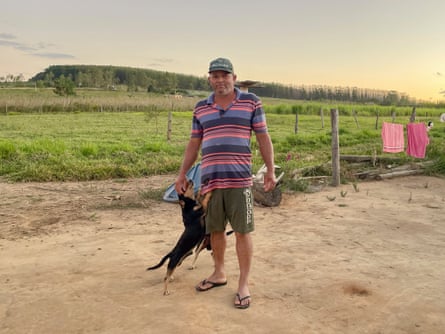
After years of roadblocks and legal battles, the state of Bahia signed an agreement with Veracel and the MST in 2016, restoring 1,300 hectares of Veracel land to the government and giving each family a plot large enough to grow their own food. Of the 61 families remaining, 53 have moved into their new plots.
“Winning a right to the land means that we now have a place to care for our youngest ones,” says Lemos Farias.
Despite losing the land, a Veracel representative maintains that the company has always operated with “transparency, social and environmental responsibility” and respect for the local population. “The company has never been convicted of land grabbing and reaffirms that its production areas are legally regulated and operate with the required environmental permits.”
Yet, in the years since the agreement, the families say they have experienced death threats, gunfire, burned homes, stolen produce and destroyed fields.
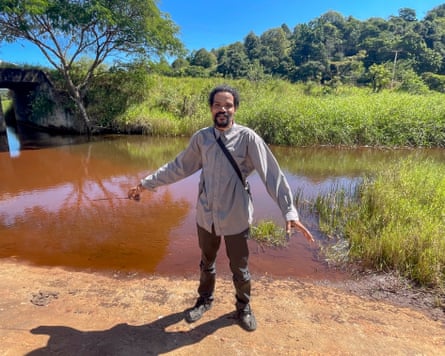
According to the MST, the conflict now centres on plots of land that remain occupied by farmers affiliated with the local union, the Federation of Rural Workers and Family Agriculture (Fetag). When it was about to lose possession of the contested land, Veracel donated 300 nearby hectares to the union – a donation confirmed by Fetag’s leadership, according to a recording of a public hearing held with Bahia’s National Agrarian Ombudsman’s Office.
after newsletter promotion
Over the past four years, six leaders of the MST have been placed under protective watch by Brazil’s protection programme for human rights defenders, communicators and environmentalists. The government has recommended that some of these leaders relocate, but out of loyalty to the movement and connection with their hard-won land, they have refused.
Because of the death threats he has received, Souza says he has trouble sleeping at night. “I am really scared that something is going to happen to my family,” he says. “There is a lot of persecution happening around here. Our tents have been set on fire, as well as our sugarcane fields.”

The MST claims that eight families do not feel safe enough to cultivate their plots, which remain occupied by farmers allegedly associated with Veracel.
Veracel says that over the past 15 years, it has allocated “more than 20,000 hectares to agrarian reform initiatives, whether through judicial agreements, donations to the National Institute for Colonisation and Agrarian Reform (Incra), donations, or direct sales, to resolve ongoing conflicts in the territory.”
The company also says “the creation of the settlements – from design to subdivision and lot definition – was conducted entirely by the state government, without interference from the company”, and “does not comment on conflicts between social movements”.
Marli dos Santos is one of the two people who still live in the old encampment. She says she has been harassed by armed men who surrounded her house and shot at the ground in front of her home. Because no one lives nearby, Santos – who lives alone – believes the gunshots were meant to intimidate her out of reclaiming her assigned plot.
In August, the state of Bahia authorised the removal of Fetag farmers who remain on Baixa Verde lots – but the ruling has yet to be enforced.
Fetag did not respond to a request for comment.
Besides defending against threats and violence, converting lands once used for eucalyptus monoculture into food production is now the main challenge for the Baixa Verde communities. Eucalyptus production is dominated by large multinationals that, since the 1960s, have been converting farmland and forest into monoculture plantations, driven by global demand.
Brazil is the world’s largest producer of eucalyptus, a fast-growing, water-intensive plant, whose pulp is exported to make cardboard and paper products. Most of the country’s eucalyptus pulp is exported to Europe, where it is used to make paper products often marketed as a renewable alternative to plastics – despite the environmental damage caused by monoculture.
In Bahia, the proliferation of these farms has earned the local moniker “green desert”, due to the loss of wildlife and the severe shortage of water and land experienced by families living near eucalyptus plantations.

Souza grew up in the region and remembers the river before the area was transformed by eucalyptus monoculture, promoted by Veracel. “We used to cross it in a canoe. It was full,” he says. “After Veracel arrived, it dried up.” He attributes the water scarcity to the company’s arrival in 1991.
Veracel says it “adopts a mosaic management system, in which eucalyptus is cultivated in plateau areas, while valleys, springs and native vegetation are preserved. This model ensures soil protection, wildlife conservation and the maintenance of water resources.” The company also says it “conducts continuous monitoring of micro-basins in its area of operation” and “develops reforestation and forest restoration projects in areas near communities”.
In the neighbouring state of Minas Gerais, the eucalyptus region of Turmalina has seen its groundwater level drop by 4.5 metres over the past 45 years, according to researchers at Minas Gerais Federal University.
Vegetation under eucalyptus monoculture absorbs 26% of rainfall to restore groundwater levels – compared with a 50% level of absorption associated with native forest. Three-quarters of farming families surveyed in Minas Gerais reported their crops being affected by the scarcity.
The cultivation of eucalyptus also poses an increased risk of wildfire. Plantations are so flammable that Chile ruled out eucalyptus as a viable climate solution after a series of large wildfires in its domestic plantations.
Despite the environmental risks, eucalyptus plantations continue to play a significant role in the carbon market, with trees being sold as carbon credits to fossil fuel polluters to offset their emissions. Despite opposition from campaigners, in May last year, the Brazilian government passed a law excluding eucalyptus from a list of industries needing an environmental licence.

 2 months ago
40
2 months ago
40
